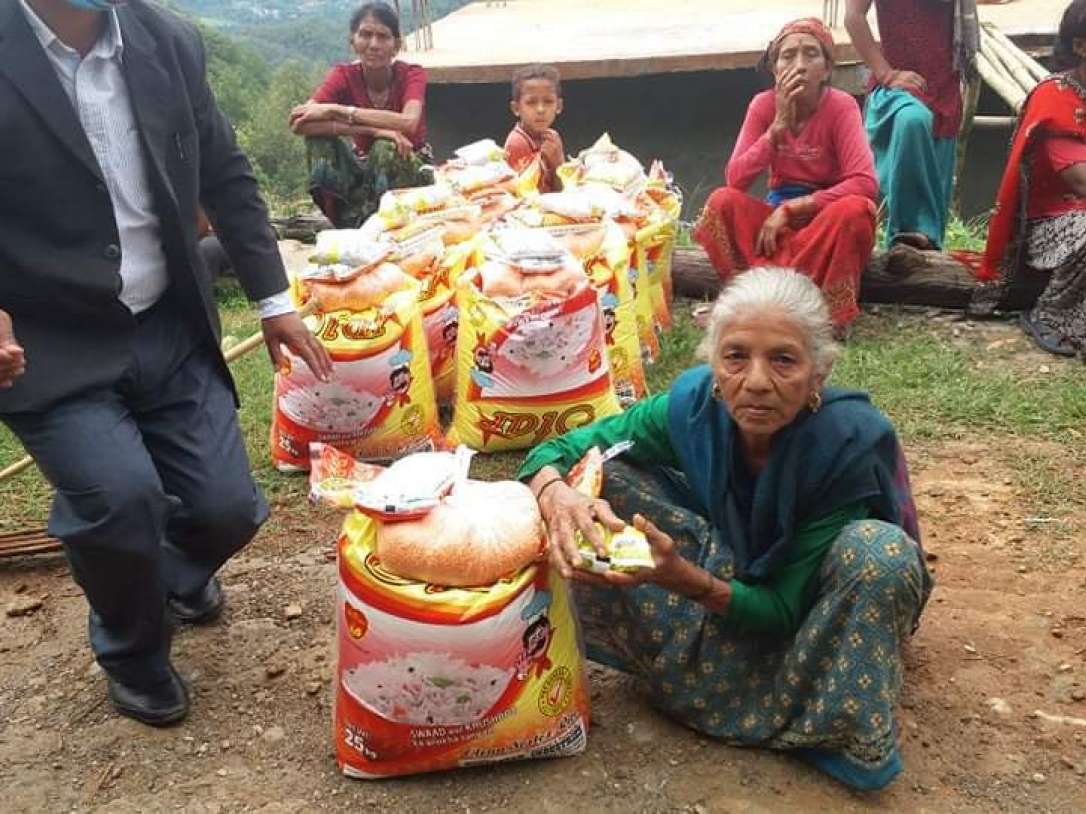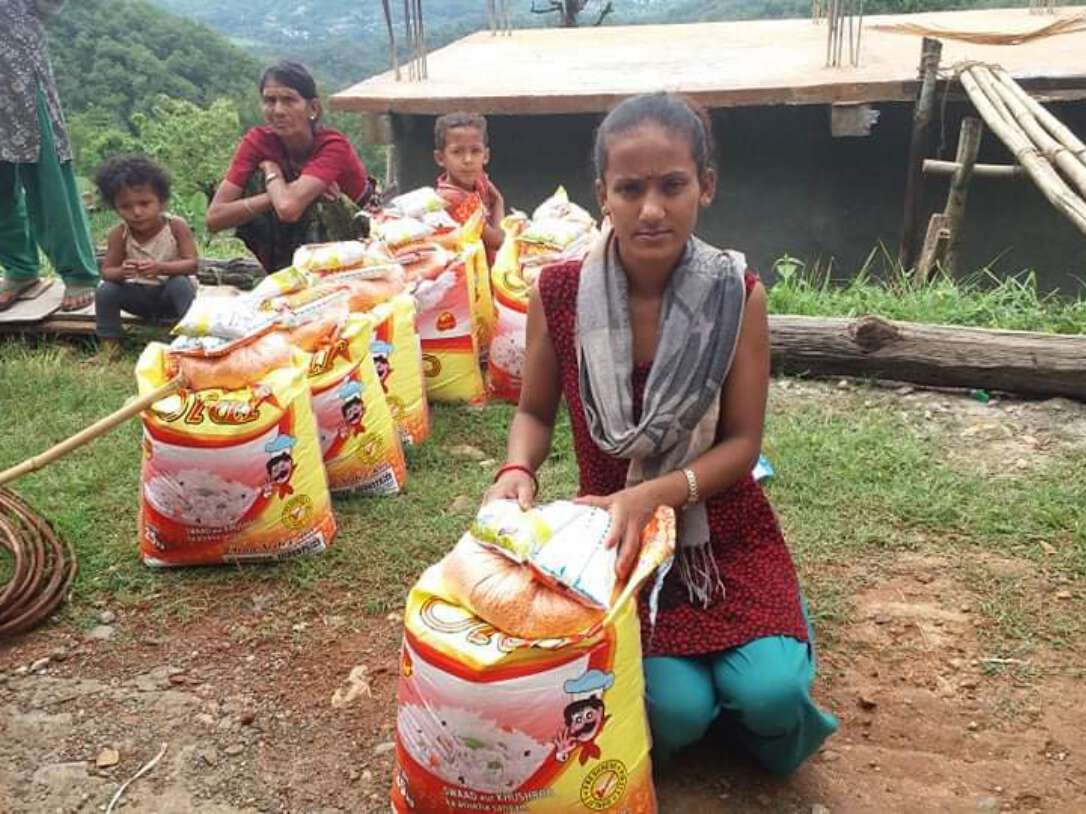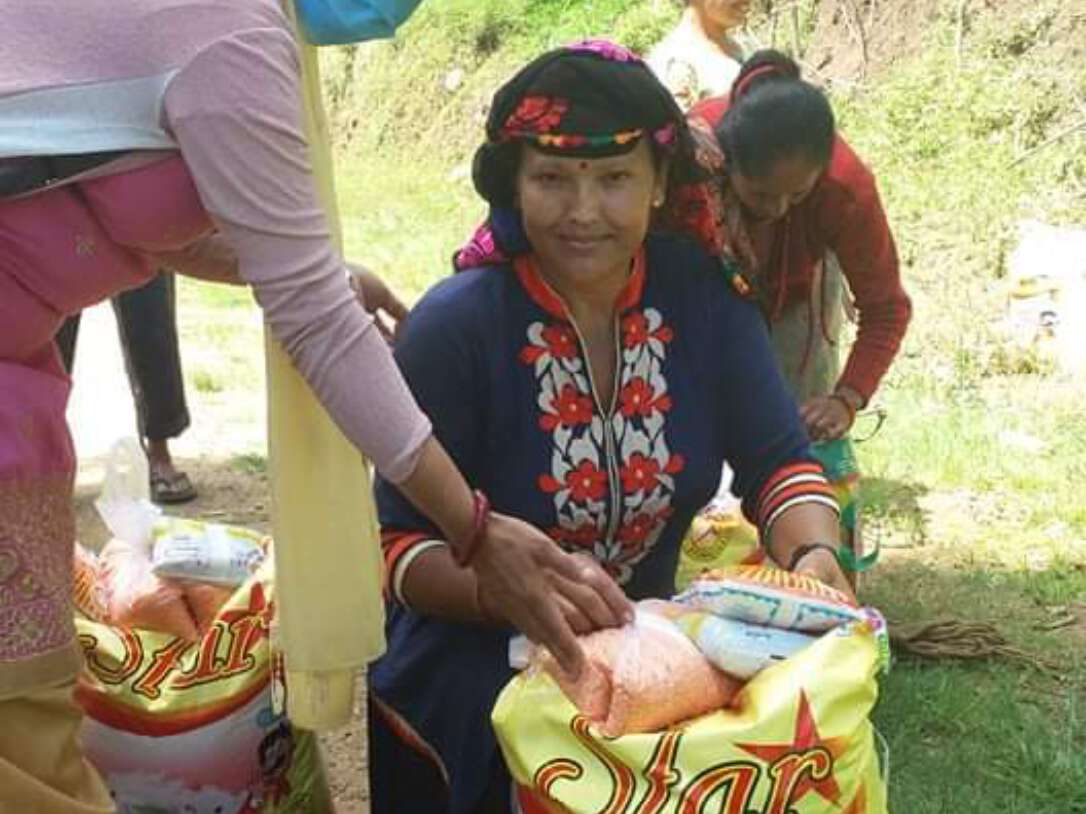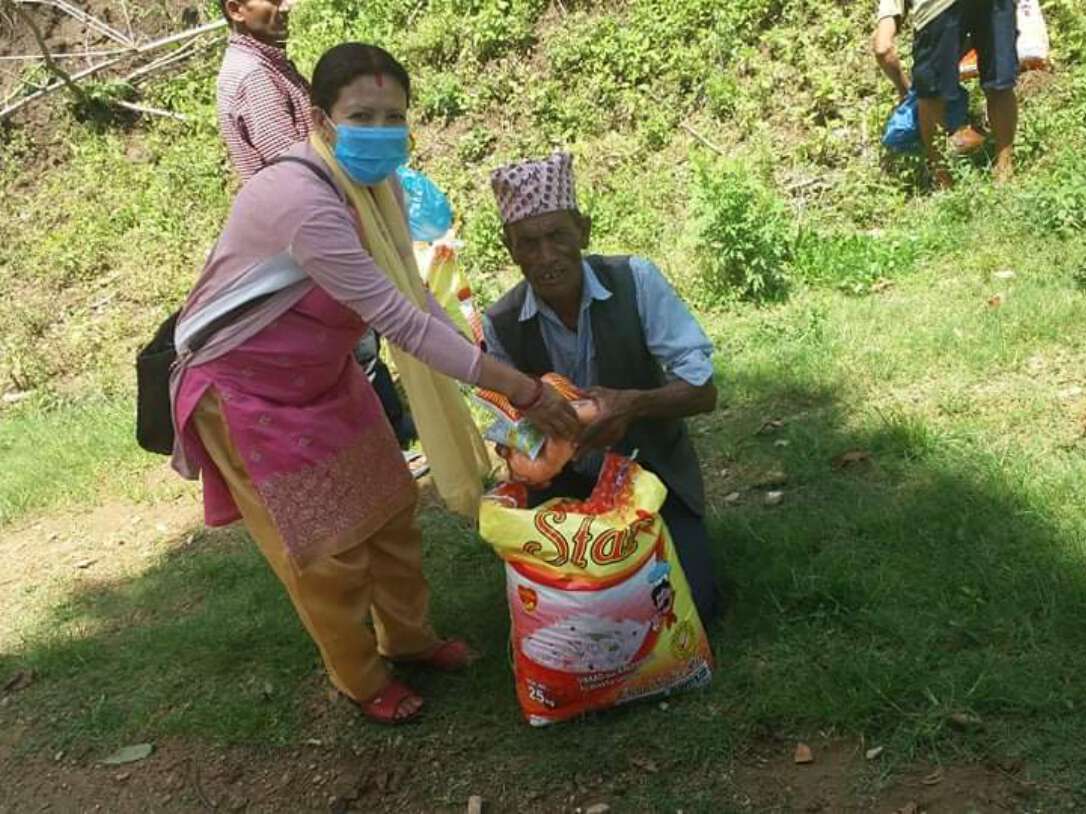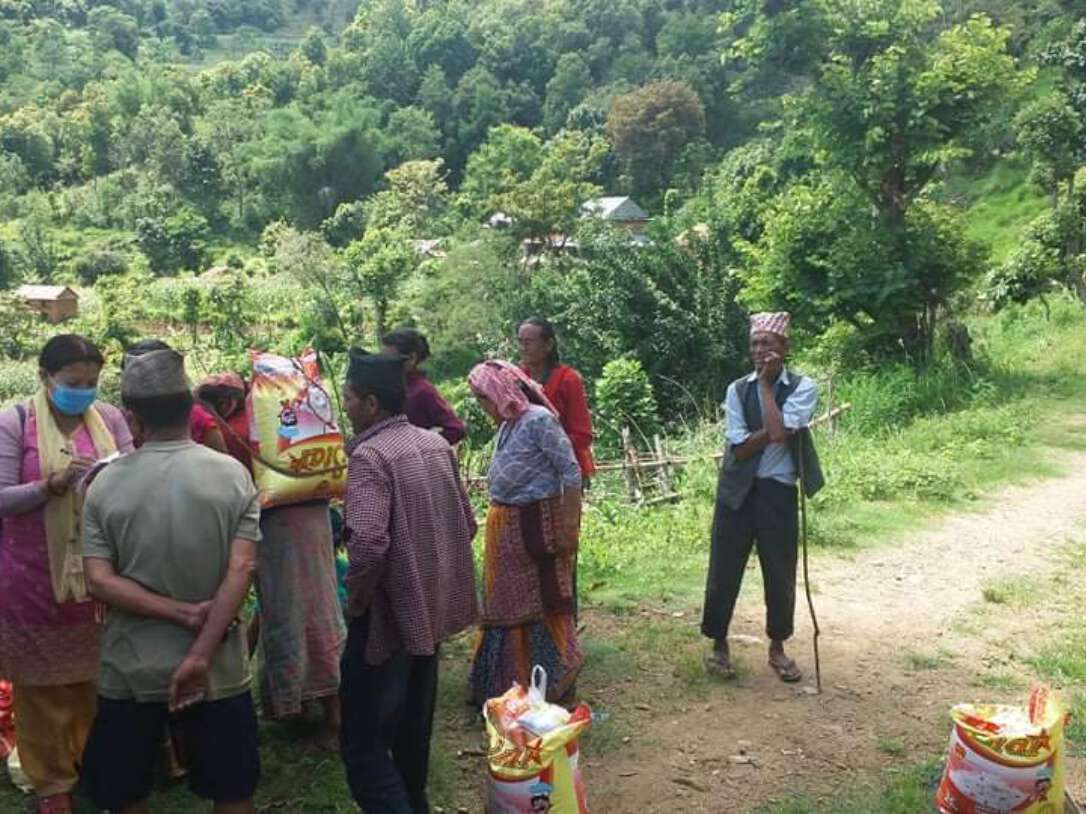Blog
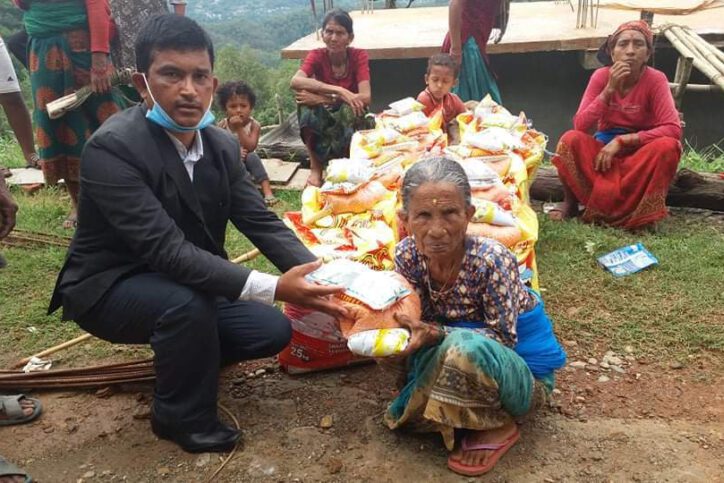
Famine in Nepal during the Lockdown due to Covid-19
Zusammenfassung des Berichts von Janak K.C. - Englischer Originaltext unten.
Wie sich moderate Maßnahmen in einem wirtschaftlich intakten Land auf Gesellschaft, Wirtschaft und Individuen auswirken, erleben wir in Deutschland seit einigen Monaten. Mit welcher Härte die Maßnahmen zur Eindämmung des Covid-19 Virus ein wirtschaftlich und politisch instabiles Land wie Nepal treffen, schildert Herr Janak, Schulleiter der englischsprachigen Privatschule des Distrikts Gorkha, im Folgenden. Obwohl 2/3 der Bevölkerung Nepals im Landwirtschaftssektor tätig sind, ist Nepal auch unter normalen Umständen nicht selbstversorgend. Umso stärker treffen der strikte inlänidische Lock-Down und der Stillstand des Imports die nepalesische Bevölkerung. Verdienstausfall und zugleich steigende Kosten für das Lebensnotwendige bringen besondersTagelöhner, werdende beziehungsweise alleinstehende Mütter und deren Kinder, die ohnehin schon am Existenzminimum leben, in unvorstellbaren Hunger und Armut. Der Lock-Down, der die eine Pandemie bekämpfen sollte,habe, so Herr Janak, anderen Epidemien wie Hunger und Unterernährung, Tür und Tor geöffnet.
Despite being known as an agricultural country, Nepal's performance in food production has not been able to reach its mark on self-sufficiency. Although about two-thirds of the population engaged in agriculture, this sector's contribution to the GDP has been only around 27 percent.
In the fiscal year 2018/2019, Nepal imported agricultural and livestock products worth Rs 224 billion. Heavy reliance on import, even for basic food stuffs for two meals a day, has posed a threat of food scarcity to the government. As the rest of the world is also enforcing lockdown to contain the virus, the strategy of the government to maintain the food supply is challenging. The food imports are sure to shrink as the supply chain is disconnected.
Social distancing and lockdown have left the country with fewer laborers in the field to grow, harvest and process the crops. As a consequence, the crops are rotting in the field. Further, the seeds pesticides and fertilizers are not easily accessible to the farmers, adding more problems to the crop sowing in the upcoming season. The disturbances in the movement of food containers and trucks and extending boarder restriction have also resulted in the spoilage of perishable products. The limited supply of goods has already led to an increase in the cost of that stuff, while the purchasing power of general people is decreasing, which might further worsen the situation. The poor are the ones affected by the virus, they are going hungry and facing the fear of starvation. In Nepal, there are millions of people whose life was already hanging in the thread even before the start of the pandemic.
The condition of many daily wage workers and labourers who have difficulty feeding their families even once a day cannot be explained in words. They have battled not only against the deadly virus but also against hunger every moment of every day, respecting laws of the government. How long are the poor supposed to endure the pain and suffering when, the only policy the government is undertaking to tackle corona virus is the extension of the lockdown?
Many marginalised communities of rural areas of Gorkha survive on daily wages. Now it's members are at a high risk of famine due to lockdown restrictions. Many mothers are going to bed hungry or half fed every night. Many pregnant women are likely to give birth to underfed babies and many people are living with multidimensional poverty.
There is an immediate need of relief in almost all of these communities. A few packages of food materials distributed by the local government have not reached the impoverished settlements. Pregnant woman needing nutritious food have not been able to eat normal food supplements.
The ongoing lockdown in Nepal has left the wage earners and the extremely poor in a state of famine. Pregnant women, newly mothers and children under the age of five are at a high risk of malnutrition. Lockdown adopted to avoid one pandemic has increased the risk of other epidemics such as hunger, famine and malnutrition.
Janak K.C.
Principal of Old Capital Higher Secondary School, Gorkha
Date: 06-19-2020
Passende Downloads
Berichte (1)
Alle Downloads
Jahresberichte (13)
- Jahresbericht 2024 (PDF)
- Jahresbericht 2023 (PDF)
- Jahresbericht 2022 (PDF)
- Jahresbericht 2021 (PDF)
- Jahresbericht 2020 (PDF)
- Jahresbericht 2019 (PDF)
- Jahresbericht 2018 (PDF)
- Jahresbericht 2017 (PDF)
- Jahresbericht 2016 (PDF)
- Jahresbericht 2015 (PDF)
- Jahresbericht 2014 (PDF)
- Jahresbericht 2013 (PDF)
- Jahresbericht 2012 (PDF)
Zeitungsartikel (10)
- 2023-06 Sindlinger Anzeiger (PDF)
- 2023-06 Höchster Kreisblatt (PDF)
- 2021-03 Sindlinger Monatsblatt (PDF)
- 2021-02 Hoechster Kreisblatt (PDF)
- 2020-07 Hoechster Kreisblatt (PDF)
- 2019-06 Höchster Kreisblatt (PDF)
- 2018-11 Höchster Kreisblatt (PDF)
- 2018-01 Frankfurter Neue Presse (PDF)
- 2016-10 Hoechster Kreisblatt (PDF)
- 2015-08 Hofheimer Zeitung (PDF)
Berichte (23)
- 2024-07 Bericht-Schulprojekt (PDF)
- 2024-05 No 1 Claudias letter 21 05 2024 (PDF)
- 2024-03 Bericht Nepalreise (PDF)
- 2023-09 Bericht über das Schulprojekt (PDF)
- 2023-03 Bericht über Nepalreise (PDF)
- 2022-11 Mr Janaks Report (PDF)
- 2022-05 Bericht Girl Power (PDF)
- 2022-03 Bericht über Zwischenprüfungen (PDF)
- 2021-10 Bericht über die Nepareise (PDF)
- 2020-12 The Buffalo Project (PDF)
- 2020-12 Bericht über das Schulprojekt (PDF)
- 2020-06 Bericht Von Janak K C (PDF)
- 2020-05 Corona and its effects on the Himalayan country Nepal (PDF)
- 2020-02 Jubilaeumsgedanken Von Frau Kurz (PDF)
- 2019-10 Reisebericht Nepal (PDF)
- 2019-10 Bericht Zum Schulprojekt (PDF)
- 2018-10 Erfahrungsbericht Monika Thurner (PDF)
- 2018-10 Bericht Dr Hannah May Kathmandu Pashupati Welfare Center (PDF)
- 2017-12 Amrisha Bericht Von Nadja Staiger Schmeiler (PDF)
- 2017-05 Bericht Über Das Schulprojekt Von Fr Staiger Schmeiler (PDF)
- 2017-01 Bericht Schulprojekt (PDF)
- 2016-02 Bericht Nepalreise (PDF)
- 2015-12 Erfahrungsbericht Rolf Schuhmann (PDF)
Briefe (4)
Alle Downloads
Jahresberichte (13)
- Jahresbericht 2024 (PDF)
- Jahresbericht 2023 (PDF)
- Jahresbericht 2022 (PDF)
- Jahresbericht 2021 (PDF)
- Jahresbericht 2020 (PDF)
- Jahresbericht 2019 (PDF)
- Jahresbericht 2018 (PDF)
- Jahresbericht 2017 (PDF)
- Jahresbericht 2016 (PDF)
- Jahresbericht 2015 (PDF)
- Jahresbericht 2014 (PDF)
- Jahresbericht 2013 (PDF)
- Jahresbericht 2012 (PDF)
Zeitungsartikel (10)
- 2023-06 Sindlinger Anzeiger (PDF)
- 2023-06 Höchster Kreisblatt (PDF)
- 2021-03 Sindlinger Monatsblatt (PDF)
- 2021-02 Hoechster Kreisblatt (PDF)
- 2020-07 Hoechster Kreisblatt (PDF)
- 2019-06 Höchster Kreisblatt (PDF)
- 2018-11 Höchster Kreisblatt (PDF)
- 2018-01 Frankfurter Neue Presse (PDF)
- 2016-10 Hoechster Kreisblatt (PDF)
- 2015-08 Hofheimer Zeitung (PDF)
Berichte (23)
- 2024-07 Bericht-Schulprojekt (PDF)
- 2024-05 No 1 Claudias letter 21 05 2024 (PDF)
- 2024-03 Bericht Nepalreise (PDF)
- 2023-09 Bericht über das Schulprojekt (PDF)
- 2023-03 Bericht über Nepalreise (PDF)
- 2022-11 Mr Janaks Report (PDF)
- 2022-05 Bericht Girl Power (PDF)
- 2022-03 Bericht über Zwischenprüfungen (PDF)
- 2021-10 Bericht über die Nepareise (PDF)
- 2020-12 The Buffalo Project (PDF)
- 2020-12 Bericht über das Schulprojekt (PDF)
- 2020-06 Bericht Von Janak K C (PDF)
- 2020-05 Corona and its effects on the Himalayan country Nepal (PDF)
- 2020-02 Jubilaeumsgedanken Von Frau Kurz (PDF)
- 2019-10 Reisebericht Nepal (PDF)
- 2019-10 Bericht Zum Schulprojekt (PDF)
- 2018-10 Erfahrungsbericht Monika Thurner (PDF)
- 2018-10 Bericht Dr Hannah May Kathmandu Pashupati Welfare Center (PDF)
- 2017-12 Amrisha Bericht Von Nadja Staiger Schmeiler (PDF)
- 2017-05 Bericht Über Das Schulprojekt Von Fr Staiger Schmeiler (PDF)
- 2017-01 Bericht Schulprojekt (PDF)
- 2016-02 Bericht Nepalreise (PDF)
- 2015-12 Erfahrungsbericht Rolf Schuhmann (PDF)
